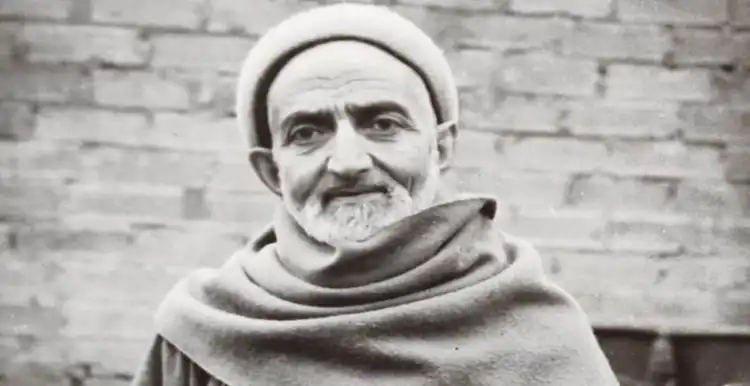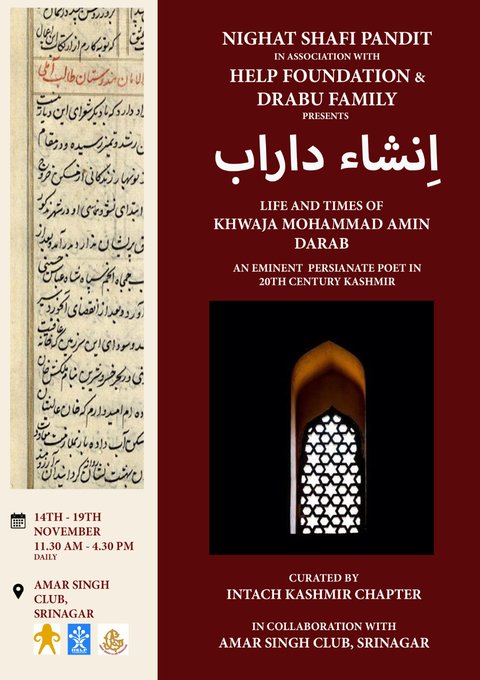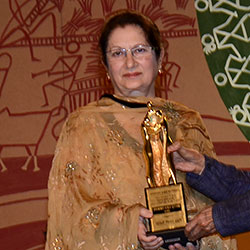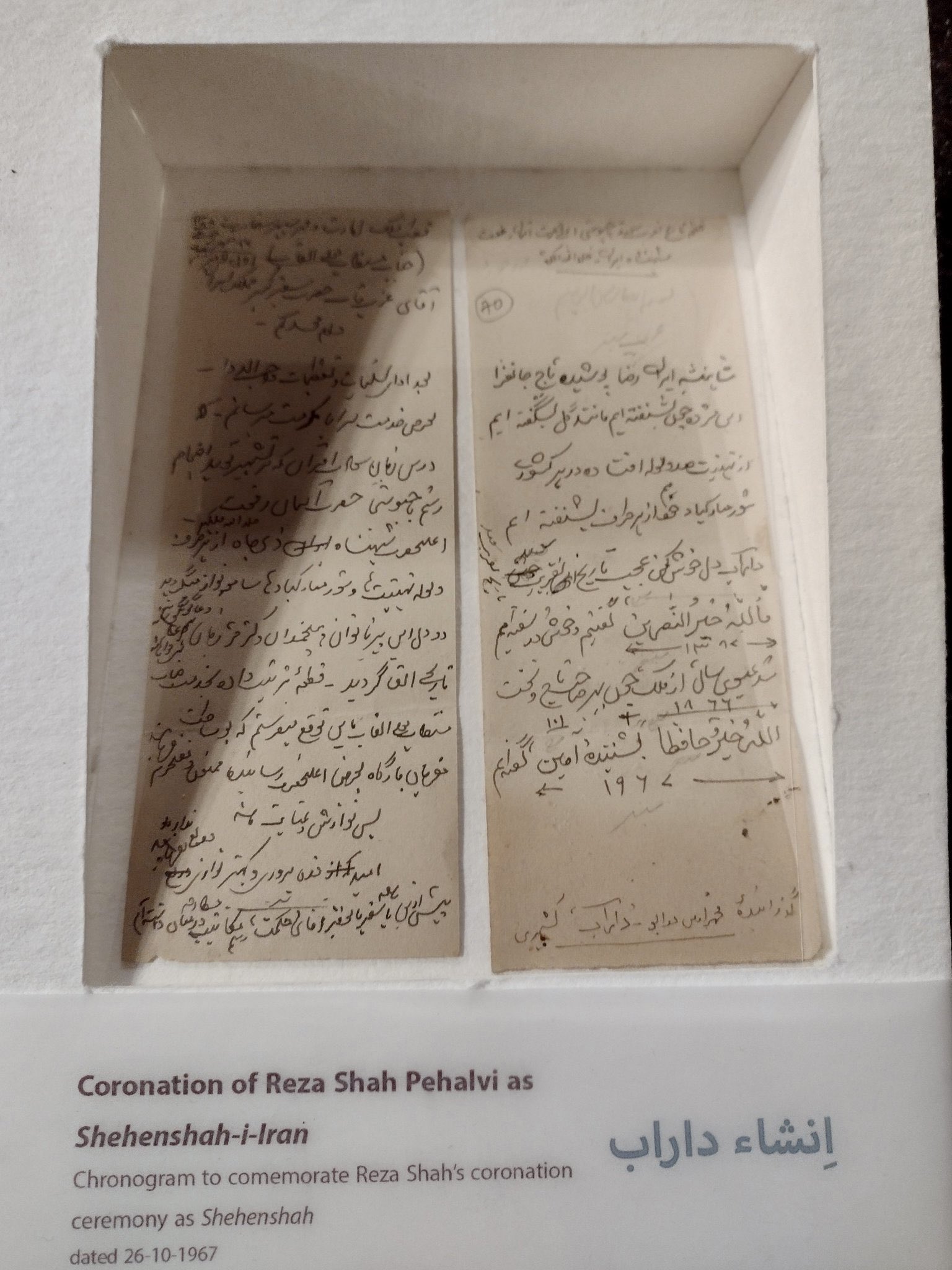
Ehsan Fazili/Srinagar
Nighat Shafi Pandit always knew that her father’s uncle Khwaja Muhammad Amin Darab was a Persian poet and yet never knew the importance of his work. Eight years ago, when she was handed over a tin-trunk belonging to the poet, who had passed away 43 years ago, as family inheritance, she barely knew the value of its contents.
Three months ago Nighat Shafi, founder of the NGO Help Foundation, opened the trunk, and surprisingly found a cache of Persian manuscripts. She instinctively knew it was heritage stuff and approached INTACH (Indian National Trust for Art and Cultural Heritage) for experts to examine the cache. Soon it was declared the “archives of the last major Persian poet of 20th century Kashmir”.
“I knew that my great-grandfather (Darab) was a great poet, thinker, and religious scholar. But I didn’t know that his level of writing was so high,” Nighat Shafi Pandit, told Awaz-the Voice. The INTACH held the week-long exhibition of these rare manuscripts in Srinagar last week.

The poster of exhibition of Mohammad Amin Darab's works
Nighat Shafi said that she asked Saleem Beg, Convenor of the J&K Chapter of INTACH to go through the manuscripts and verify the claims that Drab was the last Persian poet of Kashmir. The manuscripts of the poet who lived in the period 1890-1979, showed that Darab's contribution to Kashmir’s literary traditions was high. He wrote on culture, language, religion, and politics.
She recalls that Darab was active till his last day. “I remember he had good health and a great fortitude to work,” Nighat said. Even though had not received a formal education, he was home school. He was well known in his lifetime and was appointed a member of the J&K Academy of Art, Culture and Languages.
“This exhibition (Insha-i-Darab)is to show our rich literary traditions to the young generation,” Nighat Shafi said. Today’s generation has access to the internet and computers, while Darab and his contemporaries “had to write every page” with pen and ink. “He (Darab) didn’t waste a minute of his life ….and has contributed so much to the society,” she said.
Nighat is proud of her ancestor, “Society owes a lot to him”.

Nighat Shafi Pandit receiving Jamana Lal Bajaj award for her social work
Darab’s works were digitization and published by the INTACH while putting out the exhibition. Each manuscript on the display was captioned, giving its details.
Saleem Beg said, “This exhibition is also an invitation to individuals and families across the geography to preserve and share their family archives. We….are committed to celebrating our cherished common heritage with the community at large.”
Beg described Darab’s collection “of rich cultural value and memory that unfolded life and times of Darab Saheb, his scholarly pursuits, interest in educational and craft merchandise. We mined into the collection and examined folio after folio and assembled a selection into a thread that gives an insight into his life and also the times and the then prevailing cultural and literary landscape.
Also, it brought to the fore his way of engaging with the community, scripting for them invites, writing marsiya on the passing away of prominent persons and verified tarikhs on deaths qita-i-tarikhs or inscribing the verse on inauguration of a shrine or mosque, religious and educational activities”.

One of the Exhibits at display
“Born in Narwara, Srinagar, Darab belonged to a prominent Kashmiri family of traders and landowners, the Drabus. His father, Khwaja Nooruddin, apart from being a trader in the city, was also well versed in Persian adab, as is evident from the qitah-e-tarikh (chronogram) he wrote in Persian on the birth of Darab.
Moulvi Ibrahim in his short sketch on the life of Darab postulates that the father must have also served as the first tutor of his son. This is a tradition, which we also observed in other literary families (of Kashmir), especially in the nineteenth century. ….. His education was based on the traditional maktab system”.
ALSO READ: Kashmir’s last craftsman helps revive dying art of glazed tiles
